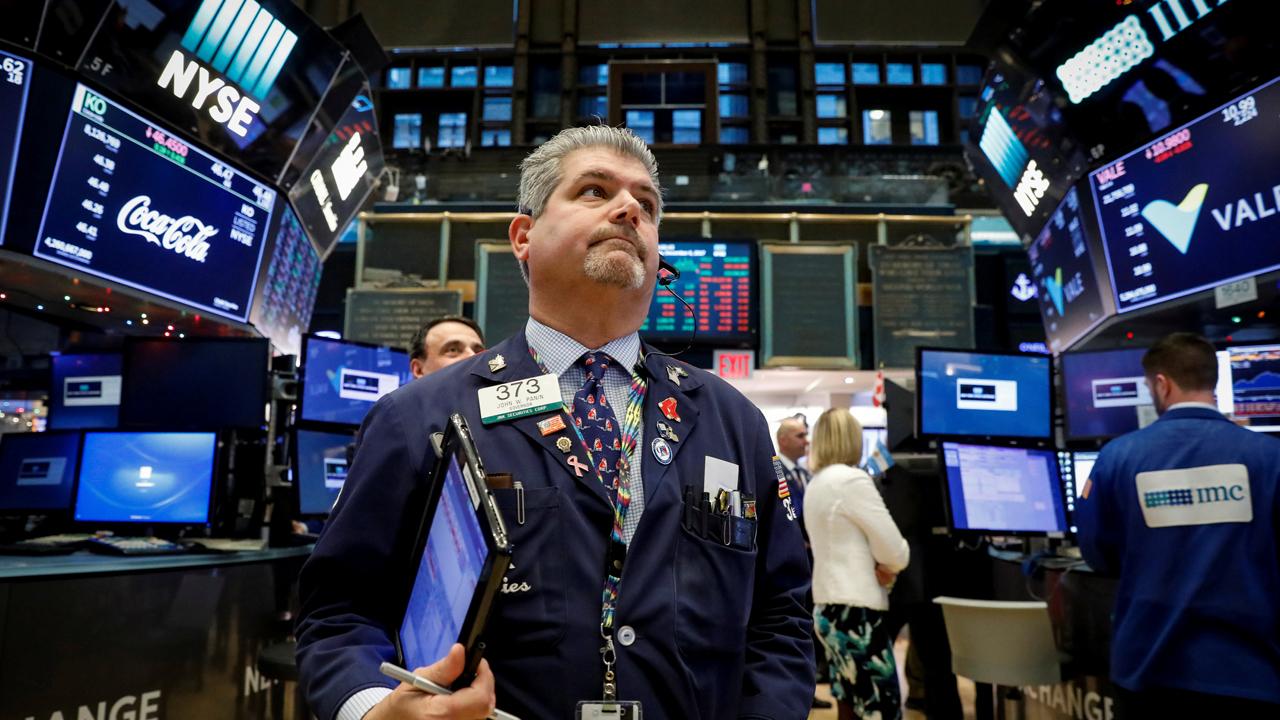Tech shares push U.S. stocks to new records
Technology firms pushed major U.S. stock indexes to fresh records Wednesday, a day after the Nasdaq Composite closed above 7,000 for the first time.
Rallying semiconductor stocks have boosted the broader technology sector at the start of 2018, after the PHLX Semiconductor Index added nearly 40% last year. The makers of computer chips used in everything from smartphones to self-driving cars have gotten a boost recently from a Semiconductor Industry Association report that showed a 21.5% increase in world-wide chip sales in November from the same month a year earlier, according to analysts.
Despite concerns among some analysts that technology stocks have gotten pricey relative to earnings, some investors think continued strength in profits and sales could justify further share-price gains.
"As long as you've got the growth, I think you can make the case that your trajectory is going to continue to go up without too much of a bubble fear," said Katrina Lamb, head of investment strategy and research at MV Financial.
The Dow Jones Industrial Average added 99 points, or 0.4%, to 24923. The S&P 500 rose 0.6% and the Nasdaq climbed 0.8%.
Nvidia (NASDAQ:NVDA) climbed 6.6%, while Advanced Micro Devices (NASDAQ:AMD) added 5.2%, extending gains from Tuesday. Meanwhile, Intel (NASDAQ:INTC) shares fell 3.4% after British publication The Register reported that some Intel processors have a fundamental design flaw that would require a significant security update of Linux and Windows operating systems. The S&P 500 information technology sector rose 1.1%.
Energy stocks were also among the biggest gainers Wednesday, climbing alongside crude oil prices amid antigovernment protests in Iran that could lead to supply disruptions.
Scana (NYSE:SCG) shares climbed 23% after Dominion Energy (NYSE:D) said it has struck a deal to buy the troubled energy firm in an all-stock transaction valued at about $7.66 billion and absorb some of the costs of Scana's failed South Carolina nuclear project. Dominion Energy shares declined 3.8%.
Stocks extended gains after minutes from the Federal Reserve's December meeting showed most officials backed continued gradual rate increases.
Officials expressed growing confidence in the strength of the labor market broadly and discussed how tax cuts approved by Congress could boost economic growth, a favorable development for stocks, said Paul Townsen, managing director at Crossmark Global Investments. Investors have said the central bank's gradual pace given steady economic growth could help stocks keep rising.
"That sentiment was already built into the markets," Mr. Townsen said. "This was pretty much the status quo," he said, adding that he will be watching for any changes in future meetings after Fed Gov. Jerome Powell replaces Chairwoman Janet Yellen.
The yield on the benchmark 10-year U.S. Treasury note settled at 2.445% from 2.465% Tuesday, though it briefly rose above 2.460% following the Fed minutes. Yields fall as bond prices rise. The 10-year yield has rebounded from its September lows, when it closed as low as 2.058%.
The dollar steadied after falling for a seventh straight session Tuesday, with the WSJ Dollar Index -- which tracks the U.S. currency against a basket of 16 others -- up 0.2% from its lowest level since September.
Elsewhere, technology stocks propelled the Stoxx Europe 600 index to a 0.5% gain. The euro fell 0.3% against the dollar, after hitting its highest closing price in three years Tuesday. Some investors expect the euro to continue strengthening on the back of unexpectedly strong economic conditions.
"Europe continues to enjoy the most important growth acceleration that we've seen in over a decade," said Alessio DeLongis, portfolio manager at OppenheimerFunds.
"We think it's an environment that's conducive to inflows into Europe, into equities particularly, and therefore into the euro," he added.
The Shanghai Composite Index added 0.6%, climbing for the fourth straight session. Hong Kong's Hang Seng Index closed up 0.1% -- its highest close in more than a decade. Japanese markets were closed and won't open for their first day of trading in 2018 until Thursday.




















